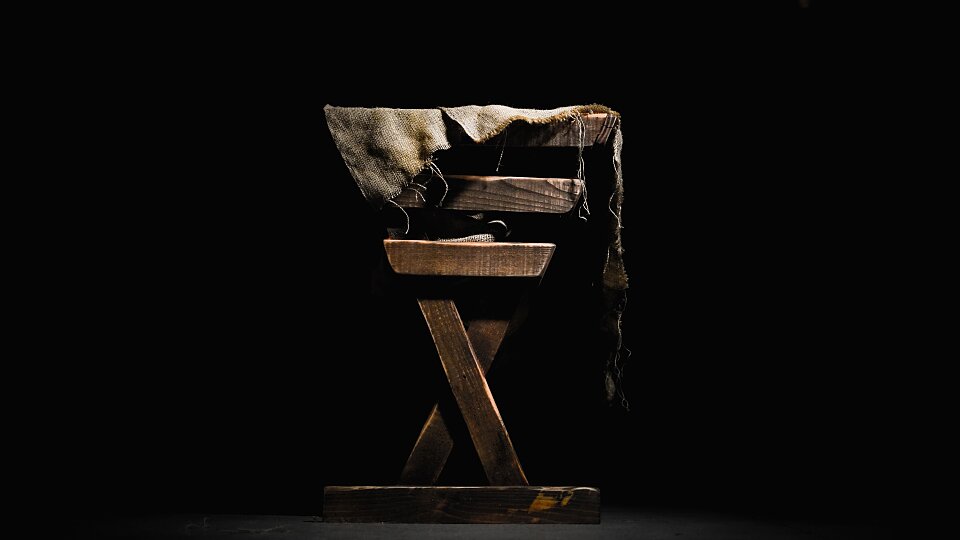An Unconventional Christmas Story
We love the idea of a warm cozy Christmas, with beautiful church services, family celebrations and generous gift giving. We wrap ourselves in the blanket of Christmas joy, peace and goodwill toward men as we tell the Christmas story year after year.
Yet as I read the biblical account through the lens of the characters in the story, a different picture emerges, one that is not so cozy and warm yet is undeniably gripping and thought provoking. I begin to recognize a series of unlikely people and unconventional events in the salvation story that disturbs and heightens my awareness of God’s mysterious and unpredictable method of communicating with humanity.
It all begins with a Jewish priest, Zechariah…” (Luke 1:5, NLT); Zechariah and Elizabeth, two elderly people, both from priestly lineage, with no children, are unlikely candidates to bear a child at their age. The angel Gabriel tells Zechariah he will be a father. Zechariah responds with the question of “How?” and is “rewarded” with becoming mute until the birth of his son. This infant is to be named John—an unconventional name that does not follow the cultural tradition of naming a child after someone in the family.
The same angel visits Mary, an unlikely teenage girl, with the news that she is chosen to bear the Son of God. “Chosen” means being mocked, judged, and ostracized. She asks “How?” will she bear a child when she is not married and is reassured God will be with her and that nothing is impossible with God. Mary accepts this unconventional news, despite her confusion and fear.
Joseph, Mary’s fiancé, is asked to walk the unconventional path of marrying a girl who is pregnant, not by him, also enduring outcast status and ridicule. He does what he is asked, perhaps reluctantly, and walks blindly into the unknown future. He is the proud descendant of King David, yet he risks excommunication for the sake of the girl and the unborn child.
The baby Jesus is born in an unlikely place, where the animals dwell. Yet King Herod, who lives in a palace where wealth abounds, is jealous of this unconventional child born in poverty and orders Jesus’ death.
The lowest in society, the shepherds, known as thieves and untrustworthy vagabonds, are among the first to know about the Son of God, a world-changing event. Just as unlikely, the high priests of Babylon, the rich and respected in society, use their astronomical knowledge to find and to worship this newborn king. Then they protect this child from a vindictive king through disobedience and deception.
Young, old, rich, poor, male, female, Jew, non-Jew, pagan priests, priests of Yahweh. All are part of the salvation story, and in today’s world we accept the characters and events without question. We accept them with warm, eager smiles as we reenact the Christmas pageant and watch our children play Mary, Joseph and the others.
Yet if we look at each character more closely and examine what part they play in the original story, at great cost to some and great risk to others, and if we dissect the unconventional methods God uses to bring salvation to earth, will the story remain warm and cozy? Will we applaud the pregnant teen or the elderly pregnant woman or the lowest in society being given the greatest news in history or celebrate the worldly advisors bringing gifts into a “sacred” place? Will being judged and excommunicated be greeted with excitement and anticipation?
The story is provocative, disturbing, full of ironies and breathtakingly beautiful. If we fast-forward to 2023, can we see where God is at work within or around us, using unconventional events and unlikely people this Christmas season to carry out his purposes? How comfortable are we with the Holy Spirit nudging us to do something that might go against cultural norms or family tradition to bring about the salvation story in our community.
We may answer that nudging with fear, reluctance and confusion. Do we respond with the question of “How?” which would be normal, considering these were the reactions of the players in the original salvation story? Yet these nudgings seem to be God’s mysterious pattern of operation: using unlikely people and unconventional events to bring joy, hope, reconciliation and peace to our world.
I know that many families seek to do the unconventional at Christmas time. I have been challenged to look around me to see where my family might take a cue from the Holy Spirit and break family tradition in order to bring hope and peace to my community—serving at a soup kitchen or inviting a neighbor over for Christmas dinner.
It's not usually comfortable to be unconventional and buck the norm, and I often think that God couldn’t use me, an unlikely person, to carry forth the salvation story. But then I realize that’s the point: God uses the ordinary, the uncommon, the least likely to carry out the mission of peace, joy and reconciliation in the world, and it doesn’t always make sense. Nor does it need to.
So this Christmas season, as we watch the nativity scene being reenacted on the stage, let’s consider the messy, astounding, puzzling and beautiful way in which the story and the characters unfold. Let’s watch for the series of unconventional events. Let’s muse about how we too might fit into the ongoing story as unlikely characters and play a part in communicating the joy and wonder of Christ’s birth in an unconventional way.

